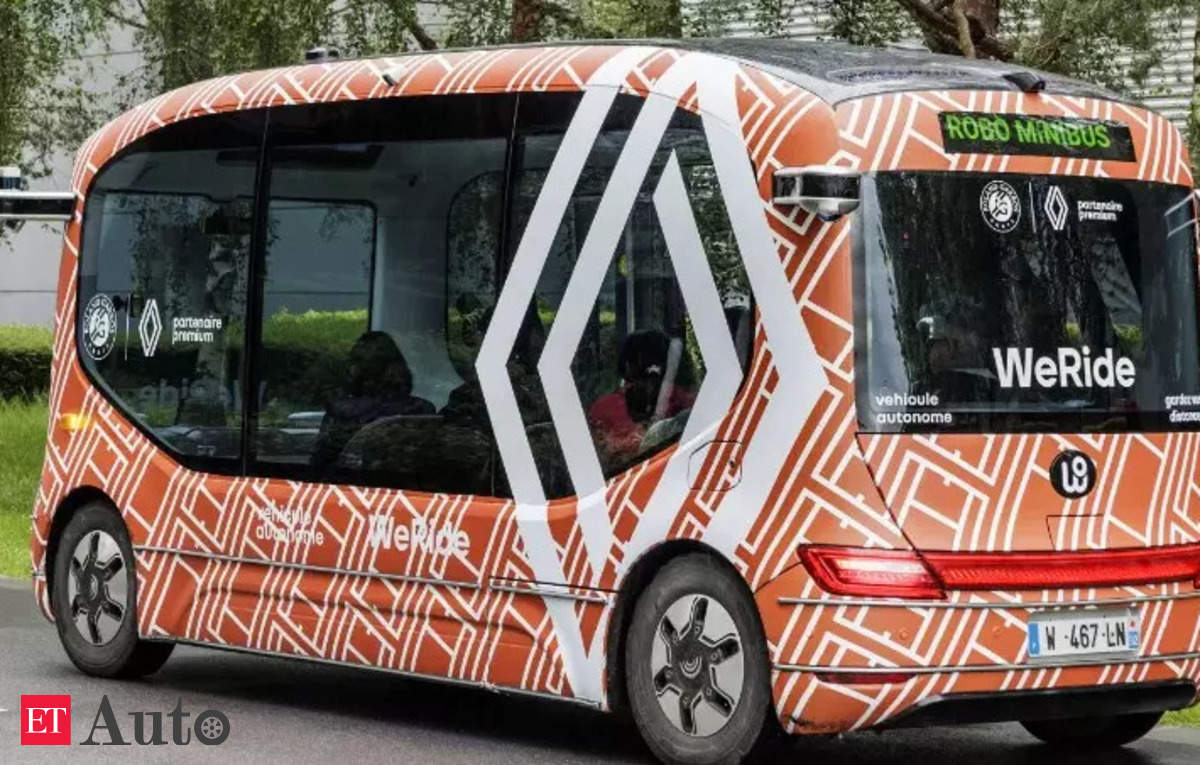New Delhi: For the individual vehicles, Renault Group already offers top-level driving assistance on most of its models, providing comfort and safety. Further automation of some functions, with the aim of achieving complete vehicle autonomy, seems unlikely for the time being, given current regulations, customer expectations and the cost of the complex technology involved.
When it comes to public transportation, Renault Group intends to be a real player in sustainable and autonomous mobility. For this, the group is developing an electric, robotised, and pre-equipped miniBus platform that will host various automation solutions from specialist partners.
Experiments have been underway for several years, and others are about to be announced, in particular with WeRide, the world expert in autonomous vehicles, with a first demonstration of public transport in real conditions in a few days’ time during the Roland-Garros 2024 tennis tournament, the company said in a media release.
Renault’s autonomous vehicle strategy
There is an international consensus around 6 levels on “automated and autonomous driving”, ranging from level L0 without any driving assistance, to level L5, the ultimate level in which the vehicle would be fully autonomous, in all situations and without any on-board operator.
In the case of individual vehicles, Renault Group is concentrating its efforts on the L2 or even L2+ level, with several driving assistances that are at the top level of the market and make its vehicles safe and pleasant to drive with confidence, such as contextual cruise control or lane keeping assist, or soon the automatic overtaking function. Although assisted, the driver remains responsible for driving, the release added.
Renault is making sure that the architecture of its vehicles can evolve towards the autonomous car if expectations, regulations, or the cost of technologies make this breakthrough feasible.
On the other hand, when it comes to public transportation, Renault Group sees the relevance of offering autonomous vehicles, with an annual need estimated at several thousand miniBuses over the next few years.
Autonomous minibus
Convinced of the benefits of autonomous public transportation, Renault Group has been conducting trials for several years to define the best response to the needs of local authorities, such as the “Mach 2 project” announced in 2023, which from 2026 will see a fleet of automated electric minibuses integrated into the public transportation network of Chateauroux Metropole (France).
Ultimately, these trials will lead Renault Group to offer a robotised electric miniBus platform based on the New Renault Master, able to integrate automation solutions from specialist partners such as EasyMile, Milla and WeRide.
More flexible, autonomous miniBuses will be able to operate 24/7 in complete safety and will be a zero-emission alternative or an efficient complement to existing solutions (train, tram, bus) in terms of costs and CO2/km.passenger. The additional costs of robotisation and automation could be offset by the absence of on-board operators. A simple remote supervision system will be required to operate a fleet of vehicles.
Today, Renault Group is initiating a new collaboration with WeRide, a world-renowned expert in autonomous driving, for the large-scale commercial deployment of vehicles with an L4 level of autonomy, i.e. capable of managing driving situations on their own, within an operational defined domain, with remote supervision, but without an on-board operator, the release added.





